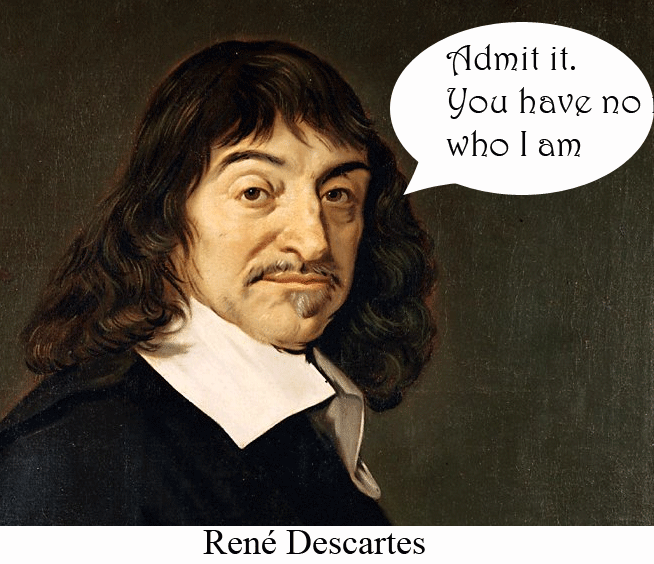
February 15, 2010
Existence Exists – and other brilliant observations
 How do you go about explaining existence? Well, I suppose you have to start at the beginning – actually, you’d have to start BEFORE the beginning, because whatever existence is made of, it can only be coherently explained if it adheres to some type of rules that are consistent and irrevocable, otherwise there would be no basis to explain it.
How do you go about explaining existence? Well, I suppose you have to start at the beginning – actually, you’d have to start BEFORE the beginning, because whatever existence is made of, it can only be coherently explained if it adheres to some type of rules that are consistent and irrevocable, otherwise there would be no basis to explain it.
Sure, there are some who say that we can’t prove that anything exists; that the only thing we can know for sure is that we can’t know anything for sure (these are people who occupy Hippie communes, the space beneath freeway overpasses, or Philosophy chairs at universities).
This type of contradictory thinking is the realm of post-modernism and relativism; a silly and intellectually bankrupt school of thought to which I do not subscribe. I agree with Plato; that the only thing we can know for sure is that existence exists – A is A. After all, if existence didn’t exist, then we could not think about it. I know I exist because I can ponder (think about) my existence. “I think, therefore I am”, to quote Descartes (whenever someone wants to show how profound they are, they quote Descartes).
But I’m getting ahead of myself because even the action of thought is preceded by the system of rules that governs the thought process. In order to explain existence, you have to start with the rules that must govern existence.
In order for these principles to be in place before the beginning of what we know as “existence”, they would have to be self-evident, immutable, and omnipresent. They would have to be obvious in every aspect of existence, with nothing in existence able to bend or break them. They would be the cardinal rules of existence from which all subsequent rules of science and logic would proceed.
I submit that there are two such rules: Causality, and Non-Contradiction. Non-contradiction is the easiest, so I’ll address it in this post.
The rule of non-contradiction simply states that contradictions cannot exist. Something cannot “be” AND “not be” at the same time. I can’t be happy and not happy. I can’t be 6 feet tall and not six feet tall. The Empire State building cannot be in New York and not in New York. Pretty simple, obvious, and self-evident, yes?
We all naturally understand and believe in non-contradiction. Healthy brains have the innate ability to detect contradictions whenever they arise. In fact, every time you get into an argument with someone, it’s because you detected a contradiction in their words or actions!
(Note: while we can clearly see external contradictions (especially in other people), we have trouble seeing our own contradiction due to pride (this is why the person on the other end of the contradiction gets defensive). An unhealthy brain detects external contradictions but justifies them in order to remain comfortable.)
But for our purposes, the non-contradictory explanation for existence is that existence can’t exist and not exist.
This is the primary reason why I reject relativism, because relativism is based on a contradiction. Relativism states that there are no absolutes. However, when one says, “there are no absolutes” they are actually making an absolute statement (that there are absolutely no absolutes). Relativism says that absolutes don’t exist yet they rely on the existence of at least one absolute as the basis for their theory (this is the contradiction that eventually leads to them living under freeway overpasses).
Next week we will look at rule #2, Causality
Related podcasts – What’s the point of existence and the meaning of life?
Remember to subscribe to this blog to receive new posts when they are published
